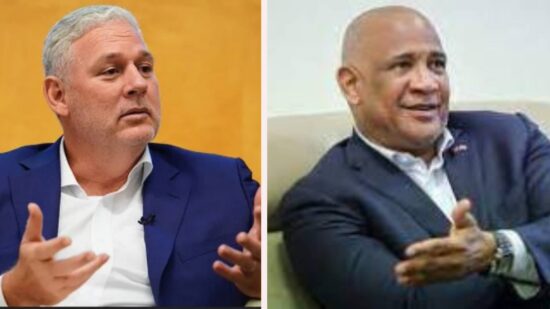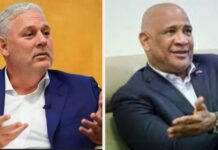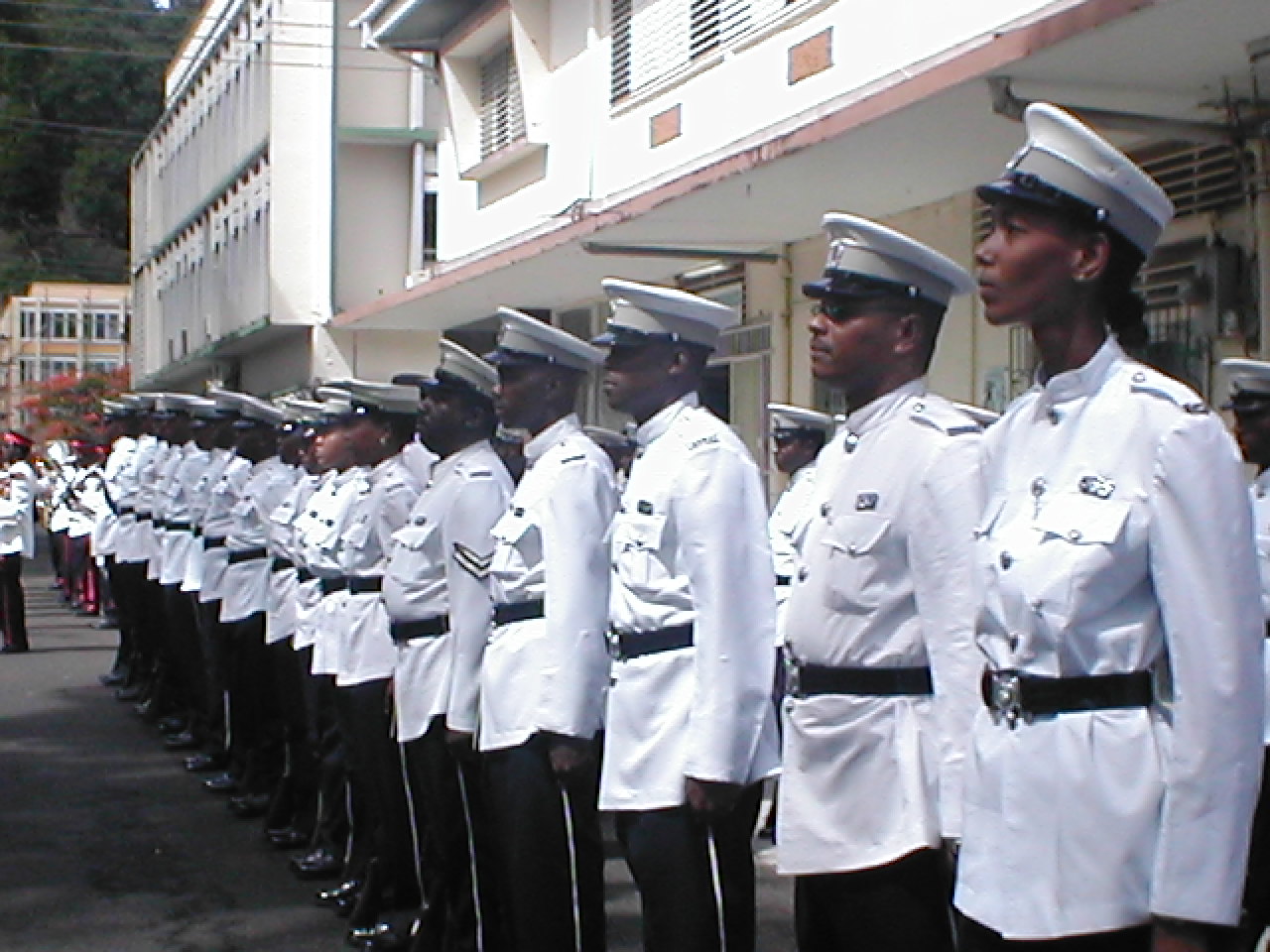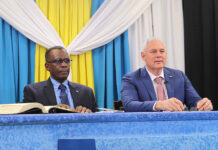On Tuesday, March 25th, 2025, Prime Minister Philip J. Pierre formally presented before parliament the Estimates of Revenue and Expenditure for the 2025–2026 fiscal year. Valued at approximately $2.1 billion, this represents the largest national budget ever introduced by any administration in the history of Saint Lucia. In outlining the rationale behind his government’s expansionary fiscal policy stance, the Prime Minister emphasized that the increased expenditure is aimed at building on the momentum of last year’s infrastructure investments or lack thereof, while broadening the scope to include enhanced healthcare services, social development initiatives, citizen security, and expanded job creation efforts.

Like many other residents of Castries South, I awaited with great anticipation the contribution of our parliamentary representative Dr. Ernest Hilaire to the national budget debate—especially given the significance of the 2025–2026 Estimates of Revenue and Expenditure, widely described as both landmark and transformational. I was genuinely shocked and deeply disappointed to discover that Dr. Hilaire—also the Deputy Political Leader of the Saint Lucia Labour Party, Leader of Government Business in Parliament, and the Minister responsible for Tourism and the Citizenship by Investment Programme (CIP) opted not to speak during the debate.
His silence is especially troubling considering the importance of his ministerial portfolios: Tourism, the main engine of Saint Lucia’s economy, and the CIP, one of the most debated and misunderstood programmes in the country’s recent economic history. At a time when the nation needed clear articulation of policy direction, sectoral priorities, and strategic vision, particularly from one of the government’s most senior ministers, Dr. Hilaire’s absence from the debate was conspicuous and regrettable. That this decision may have been influenced by the refusal of the Opposition Leader, Allen Chastanet, to participate only deepens the concern. The responsibility to represent the people of Castries South and contribute meaningfully to national discourse should never be contingent on political gamesmanship.
The national budget is a document of profound significance, serving as the government’s primary instrument for managing public finances, distributing resources, and translating economic and social policies into actionable programs. It is central to achieving national development objectives, promoting fiscal accountability, and ensuring macroeconomic stability. Beyond its technical functions, the budget plays a pivotal role in shaping the country’s developmental trajectory, guiding investments that foster growth, innovation, and long-term prosperity. Equally important, a budget should reflect a government’s commitment to social equity, as it implements targeted measures to protect the poor and vulnerable, reduce inequality, and support inclusive development. One of its core functions is to effectively manage the economy, ensuring the optimal use of limited public resources to meet both present demands and future ambitions. In essence, the national budget is not merely a financial plan, it is a strategic roadmap for nation-building.
Dr. Hilaire must be reminded that he is in government, and with that comes a constitutional and statutory obligation to address the House and the nation, especially on matters as consequential as the national budget. Given his seniority and presumed involvement in shaping the policies and priorities presented, his silence is not only baffling—it is deeply disappointing.
Given that this budget may very well be the last before the next general election, Dr. Hilaire’s non-participation in the debate is, frankly, an act of disrespect to his constituents and flies in the face of the principles of good governance, transparency, and accountability. Additionally, Dr Hilaire is the minister with responsibility for the controversial and troubling CIP Programme. His deafening silence reverberated loudly and clearly as he negated his solemn duty to sensitize the nation on the sad state of affairs relating to the CIP Programme. This is particularly worrisome as the European Union (EU) and the US (both Democrats and Republicans lawmakers) are scrutinizing the Citizenship by Investment programs in Caribbean countries, potentially leading to visa-free travel restrictions for CBI nationals due to security concerns and perceived program weaknesses.
The EU has further expressed concerns about the screening and vetting procedures of Caribbean CBI programs, suggesting they might not be robust enough to prevent potential security risks from entering the Schengen area visa-free. As such, there is mounting evidence that the EU is considering suspending visa-free travel privileges for nationals of Caribbean countries with CBI programs if these concerns are not addressed. As a former high-ranking diplomat, this should not be lost on Dr. Hilaire.
Instead, the Member for Castries South chose to neglect one of his key parliamentary responsibilities by not addressing his ministerial portfolio in Parliament on the budget. Honourable Ernest Hilaire’s muteness in the House of Assembly was perhaps pivoted on the axis of political mischief, design with cunning malice and was premeditatedly and circumspectly calibrated with poisonous quiet political venom of the worst kind. At its core, this act on the part of the Member of Parliament for Castries South implies that his action was planned in advance and composed in a careful and methodical manner.
This technique or approach of political engineering was artfully executed, with skill and precision as a political strategy in the House of Assembly. This type of maneuverings appears to be generally consistent with the view that the agenda of the “party “and the office or tenure of ‘a ruler has paramountcy with absolute power and supreme jurisdiction over the government of a state.
When they claim to be putting people first, what they are in fact doing—cleverly and strategically—is placing the party’s economic and political ideology at the forefront. This ideology, often presented as a vehicle for empowerment, subtly positions itself as the driving force behind the country’s economic and social structures, promoting social ownership of political control under the guise of public interest.
Such an approach reflects a broader alignment with economic, political, and social movements that tend to depart from the principles of representative democracy, favouring instead centralized authority masked as collective will. Beneath the rhetoric of prioritizing the people lies a carefully constructed framework where the loyalty to party doctrine supersedes genuine democratic engagement and representative politics, gradually blurring the lines between governance for the people and control over the people.
Therefore, it is imperative to send a clear and unequivocal message, delivered with fierce urgency, that party paramountcy must never be elevated above the broader imperative of national unity and cohesive nation-building. The interests of a political party must not eclipse the collective aspirations of the people or undermine the foundations of inclusive governance and long-term national progress.
I therefore pose these six questions directly to Dr. Hilaire: Should the people of Castries South and Saint Lucians at large interpret your silence as a lack of support for the budget? Was your decision not to speak based on the fact that there is little or nothing in the budget for Castries South, and thus, you preferred not to draw attention to that? Is it now your standard political strategy to only speak after Allen Chastanet, so you can build your contribution entirely on rebuttal rather than proactive leadership and representation? Did you exploit Allen Chastanet’s decision not to speak as a convenient shield to avoid your own accountability to the nation? If that is the case, then you owe the Leader of Opposition a sincere debt of gratitude for providing you with political cover. Should your decision be interpreted as an attempt to safeguard your public image, just as members of your party have so fervently urged the nation to do on your behalf? Finally, Dr. Hilaire, was it Allen Chastanet who elected you, or was it the people of Castries South? Your silence suggests you are more concerned about Allen Chastanet’s actions than about the needs of your constituents.
What the nation, and particularly the constituents of Castries South, witnessed was nothing less than a blatant dereliction of duty. Importantly, Ernest must be reminded that it is through the democratic political process that the people entrusted him with the mandate to speak and act on their behalf. His failure to do so not only reflect a dereliction of that responsibility but also raises serious questions about his legitimacy and fitness to continue representing the people of Castries South. Representation is not a title—it is a duty.
Further, this episode underscores a troubling pattern of evading accountability, exemplified when Dr. Hilaire tabled a two-year-late Citizenship by Investment Annual Report during the Minister’s Statement segment of Parliament a procedural maneuver lauded by party faithful that conveniently shielded the report from parliamentary scrutiny. Disturbingly, this tactic was not only enabled but effectively executed by both the Speaker and the Prime Minister.
May I also remind the nation and in particular, the constituents of Castries South—that the Citizenship by Investment (CIP) Annual Report for 2023–2024 remains conspicuously overdue, constituting yet another clear violation of statutory obligations. This ongoing disregard for transparency and legislative compliance is no longer an isolated lapse it has seemingly become the modus operandi and standard operating procedure of the Saint Lucia Labour Party administration.
Disturbingly, this pattern extends beyond the CIP. Other statutory agencies, such as the National Lottery Authority, have also failed to table their annual reports, further compounding the erosion of public trust. These actions represent a serious affront to the principles of accountability, integrity, and good governance—principles to which every public official is duty-bound. The people of Saint Lucia deserve transparency, not concealment. They deserve leadership, not avoidance.
Such practices undermine the principles of democracy and responsible governance. We must demand better, not only from the Opposition but from those we entrusted with power. Moving forward, the Standing Orders of the House should be reviewed and amended to ensure that the Opposition is not unfairly disadvantaged during parliamentary proceedings. Without such reform, we risk continuing a troubling trend of silencing the minority, an act that undermines the very foundations of our democracy.
Importantly, the Standing Orders of the House should be amended to include a clear and binding provision that requires Members of Government to contribute to the debate on the Estimates of Revenue and Expenditure, once they are present in the Chamber. Given the critical role that government ministers play in shaping the budget and influencing national priorities, their participation should not be treated as optional or discretionary. Speaking on the Estimates is not merely a political courtesy—it is a constitutional responsibility and a matter of public accountability.
Perhaps it is time for Saint Lucia to consider adopting a more structured and transparent approach to budget debates—similar to the model currently practiced in Jamaica. For instance, in 2025, Minister for Finance and the Public Service, Hon. Fayval Williams, presented Jamaica’s Budget Estimates on March 10th. Two days later, on March 13th, Hon. Julian Robinson, the Shadow Minister of Finance, delivered a comprehensive rebuttal to the government’s budget proposals. This was followed on March 16th by a substantive contribution from Opposition Leader, Hon. Mark Golding, providing further scrutiny and alternative policy perspectives.
Subsequently, on March 25th, Prime Minister the Most Hon. Andrew Holness presented his response, culminating with Minister Williams’ closing presentation, during which she addressed and responded to the opposition’s critiques and concerns. This format enables a thorough and meaningful interrogation of the numbers and proposals outlined in the national budget, ensuring that the debate remains substantive and policy focused.
Following the general debate, Jamaica’s Parliament then proceeds to the sectoral debates, where each Minister outlines the budgetary priorities for their respective ministries. These are in turn met with responses from their corresponding Shadow Ministers from the opposite side, allowing for a more detailed, transparent, and accountable examination of sector-specific plans. Such an approach promotes deeper democratic engagement, strengthens parliamentary oversight, and ultimately serves the public interest by ensuring that every dollar proposed in the budget is rigorously justified.
As a nation, we must disabuse ourselves of the notion that such a sacred and consequential exercise as the national budget should be confined to just a few hours of parliamentary debate. This approach undermines the gravity of the process and shortchanges the public’s right to transparency, accountability, and thorough scrutiny of how their resources are being allocated and managed. Importantly, citizens deserve to hear directly from those in charge of key portfolios about how resources are being allocated and what outcomes are expected. Failing to mandate such participation risks weakening the transparency, credibility and integrity of the budgetary process, and undermines public trust in our parliamentary democracy.
“The tyranny of a prince in an oligarchy is not so dangerous to the public welfare as the apathy of a citizen in a democracy.” – Montesquieu
————By Concerned Castries South Constituent










